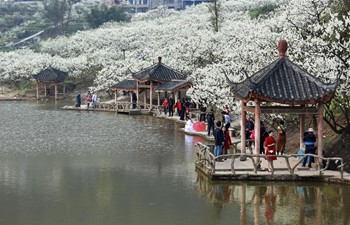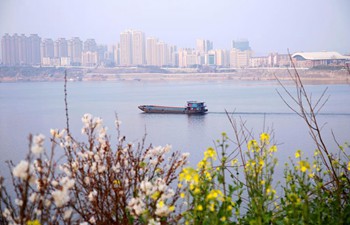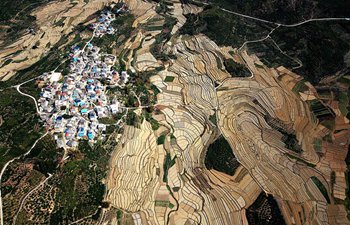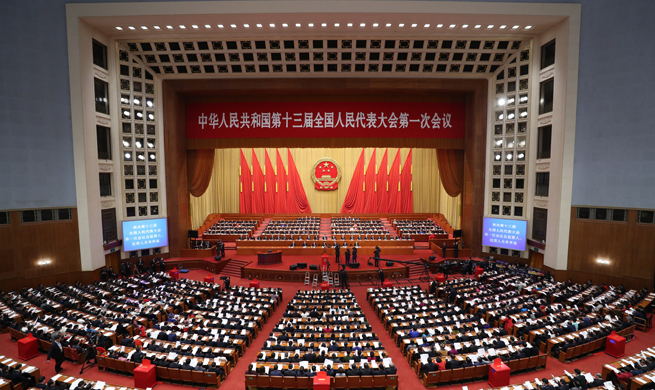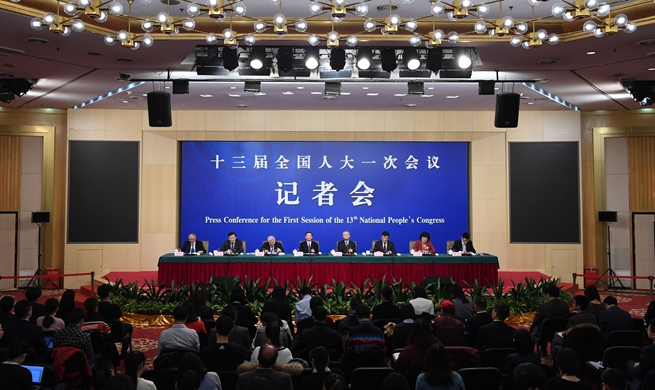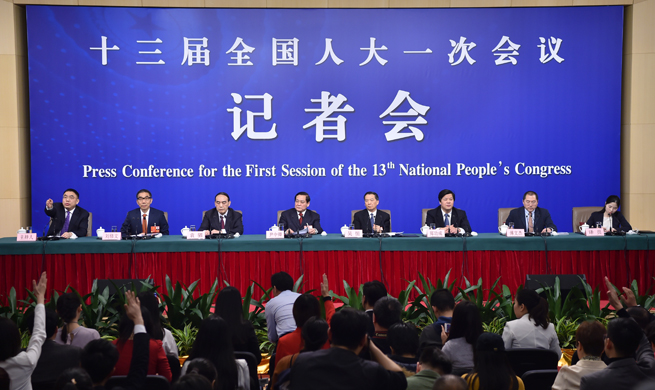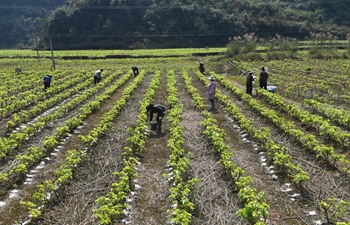ANKARA, March 12 (Xinhua) -- The Turkish government's plan to privatize 14 sugar factories sparked a bitter controversy, with workers and unions warning that whole agriculture communities would be affected.
"Don't listen to lies spread by people who do not know the issue. Those factories will not close down; on the contrary, they will produce even more," said Prime Minister Binali Yildirim to reporters on Friday, when he was asked about this issue which makes headlines in Turkey, an important sugar beet producer.
"We will not allow that farmers or workers fall victim of this scheme," insisted the prime minister.
Last month, the Turkish Prime Ministry Privatization Administration announced its intention to sell off some of the 25 plants of the publicly owned sugar factories company Turkseker.
TURKEY, BIG SUGAR PRODUCER
Turkey accounts for 7 percent of global sugar beet production, which makes it the world's sixth-largest producer after the United States, France, Germany, Russia and Ukraine, according to the UN Food and Agriculture Organization.
The country produces about 2.6 million tons of sugar from sugar beets annually, half of which comes from Turkseker factories.
The privatization administration said it would sell off 14 factories, most of them in industrially poor regions of central and eastern Turkey.
The plan triggered objection from employees and their trade unions, local communities, sugar beet producers, opposition parties and consumers across Turkey, making it a real political controversy.
The objection formulated by a sugar beet farmer of Ankara during a meeting organized in a fancy hotel went viral on social media.
In front of labor union representatives, Nihat Babaozlu, a farmer in his 50s, told the audience that they were doomed to die as a whole sector if the notorious plan was to go on.
"No one is paying attention to our cause, which is essential for the country. Listen all! We are dying slowly," he lamented.
LIVELIHOOD OF FARMERS THREATENED?
Sugar beet industry played a crucial role in Turkey's industrialization in the early 1930s by building infrastructure in rural areas as well as providing job opportunities for local people.
Workers fear that the privatization will drag down their livelihood standards as buyers will be free to claim losses and close facilities after a period of five years.
Along with the opposition party, they have accused the U.S.-based multinational company Cargill, operating in Turkey since 1986, of benefiting from this scheme, which the company swiftly denied.
The head of a leading Turkish agriculture association has voiced concerns about the privatization plan, insisting that sugar is a strategically vital product.
Union of Turkish Chambers of Agriculture head Semsi Bayraktar said this plan "should be reconsidered."
Nearly 2.1 million tons of sugar is consumed annually, Bayraktar said, adding that this demand should be met by local sources in an effort to maintain independence from foreign sources in this key product.
Main opposition Republican People's Party (CHP) leader Kemal Kilicdaroglu also harshly criticized the bid, saying the move aims to promote starch-based sugar production, which, according to experts, might trigger cancer cases.
Kilicdaroglu insisted that the move would "affect nearly a million citizens" depending on sugar production to survive.
Cargill produces liquid sugar from genetically modified corns while the use of such sugar is forbidden in some countries, though consumption is rising in Turkey, the CHP leader stated.
President Recep Tayyip Erdogan's ruling Justice and Development Party came to power in 2002 against the backdrop of a major economic crisis in 2001, and assured high GDP rates for more than a decade, an economic prosperity which proved to be beneficial especially for poor classes.
Since 2002, many assets worth around 70 billion U.S. dollars were privatized. The government mainly sold the state enterprises in the areas of industry and communications.
The sugar industry, according to specialists, has not been modernized for nearly two decades; despite this fact, they are not operating at a loss, though not making significant profits either.
"Sugar factories should be modernized with new machinery instead of being privatized. They can be rendered more productive and efficient financially," said the head of the Agricultural Engineers Chamber, Ozdemir Gungor, quoted by the local press, calling on the government to reconsider its decision.
Moreover, he rang the alarm bells on consumers being financially pushed to purchase starch-based sugar, which is cheaper than "real sugar."
He said the actual quota of 15 percent of starch-based sugar production will increase at least to 25 percent after the planned privatization.
The government insists that privatization won't definitely hurt farmers because authorities have brought a ceiling quota for white sugar that must be produced after the planned sell-off of the factories.
"We will control very thoroughly starch-based sugar production, we will adopt legislation on this effect," said Yildirim.
But it remains to be seen if his assurances will in fact convince farmers and consumers in Turkey on the future of the industry.




